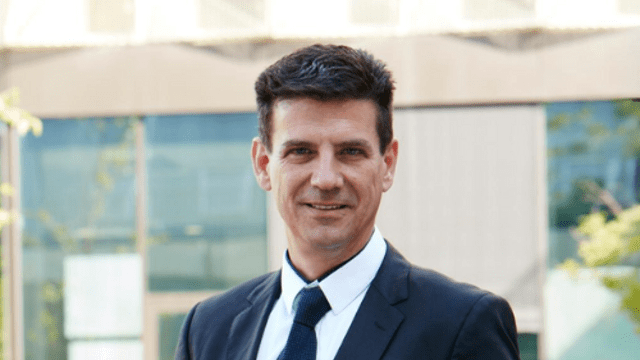Henri Pidault (Class of 1985) currently serves as the Chief Information Officer (CIO) of SNCF. For nearly four decades, he has been anticipating and shaping technological advancements, playing a key role in the digital transformation of businesses.
In the 1980s, Henri developed an early passion for digital technology when it wasn't yet established as a distinct discipline. At ENS Paris-Saclay, he chose to pursue applied physics, earned his teaching qualification, and then specialized in microelectronics at the University of Paris-Saclay.
A pioneer in the digital field
He co-founded "GREENS" (Research and Study Group of the École normale supérieure), the school's first junior enterprise, during his second year. They undertook computer missions for technological SMEs. However, this innovative initiative, ahead of its time, was halted by the school's administration. Henri and his peers later turned to establishing the "Normaliens autrement" association, a precursor to "ENS Alumni," of which Henri became the president in 2015.
Post-graduation, Henri distinguished himself by founding a startup in computer-aided design (CAD) software—a remarkable step for a normalien at that time. His career paralleled the rapid progress of digital technologies in the 1980s and 90s. Whether at ATOS, as Deputy CIO at Compagnie des Alpes, or at Mazars as Group CIO, he designed and deployed information system strategies significantly improving companies' performance.
In 2012, Henri chose to join Kyriba, a global leader in online treasury management (SaaS), rather than becoming the CIO of Caisse des dépôts. He held the position of Executive Vice President IT, Technology & Product, contributing to transforming the French company into a unicorn valued at several billion dollars today. This period marked a turning point in his career: "It was an extraordinary experience," recalls Henri Pidault. "I was traveling around the globe regularly because my teams were spread worldwide!"
Commitment to the public sector
While Henri Pidault's career began in the private sector, he continues it today in the public sector. "France trained me in excellence, and I am happy to give back a little today." Firstly, by accepting the presidency of GIP RENATER in 2020, the digital communication operator of the State well-known in the academic world. Since 2017, within the SNCF group, where the CIO is behind ambitious digital projects. "I lead an internal production unit of 2000 people tasked with producing digital solutions for all group subsidiaries and generating nearly 600 million in internal revenue." SNCF also contributes to digital transformation in territories through Terralpha, a subsidiary he created within the group. "We use the 20,000 km of optical fibers of SNCF to provide high-speed services in the territories." But what Henri is most proud of is the retraining program for hundreds of railway workers into the digital field, offering various opportunities for new careers. "We have successfully trained and supported over 300 people with very diverse profiles in IT development, including 30% women, which is remarkable in this sector. This successful experience has attracted the attention of the government for civil servant retraining."
Navigating complex subjects
For each of his experiences, Henri Pidault draws from the pedagogical and methodological background acquired at ENS Paris-Saclay. "All normaliens possess this ability to 'absorb' the novelties of our rapidly evolving world," he asserts. "One of the school's strengths is not placing any barriers between disciplines." This ability to understand and then simplify any complex subject has served him well throughout his career, "especially during executive committees where you need to convince non-specialists about complex and innovative technical topics." The normalien has taught information system strategies at Essec and Télécom Paris and has ventured into writing didactic books. After a first book on cybersecurity, a second one on artificial intelligence is set to be released. "I enjoy conveying and simplifying the use of innovations for businesses and the general public. The digital revolution also concerns education," notes Henri Pidault. "One of the questions that arise, for example, for ENS Paris-Saclay is how artificial intelligence can be integrated into knowledge transmission to make it even more effective?"

Comments0
Please log in to see or add a comment
Suggested Articles

